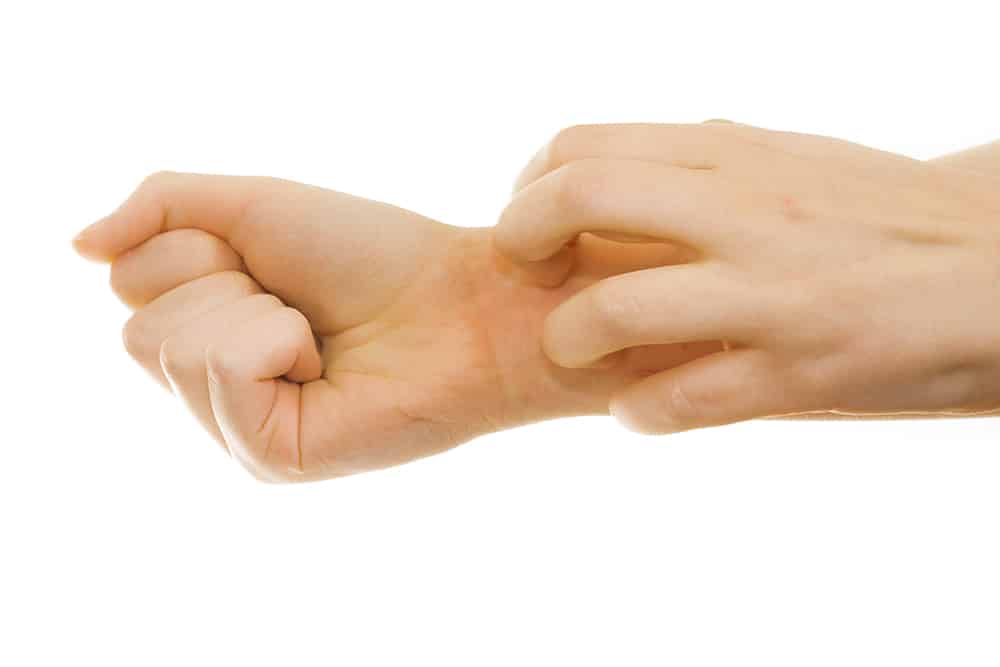If you suffer from eczema, you are not alone. Nearly 30 million adults, children, and babies experience this itchy, red rash. This makes it one of the most common reasons people visit the doctor. Dealing with eczema can be frustrating. Know what causes this condition and what you can do to manage it to put you in control. So, what are the causes of Eczema?
What Causes Eczema?
When we first started learning more about eczema causes, we made a surprising discovery: there’s no clear answer about why it happens! However, there is a leading theory: eczema can occur when the body overreacts to an irritant. This overreaction leads to the rash, itchiness, and skin changes that people who suffer from eczema are so familiar with. Eczema is not contagious, but it is not uncommon for the condition to run in families.
Eczema Triggers
Eczema symptoms often grow worse in response to triggers. Triggers can vary from person to person: things that cause your eczema to flare up might not affect someone else. You may find that allergens such as pet dander, pollens, or molds can trigger your eczema symptoms. Or, you may find that certain types of weather (such as particularly low or high humidity) act as a trigger. Some of the most common types of triggers are certain ingredients in soaps, bubble baths, and perfumes.
Many of our customers have found that using homemade skincare products made from our 100% unrefined organic Shea butter helps to soothe the itching and irritation caused by eczema flare ups. Natural skincare products can also act as a substitute to soaps and lotions that contain triggering ingredients. There’s no need to take our word for it, though. Read what some of our customers have to say about how our Shea butter helped soothe their eczema symptoms.
Causes of Eczema in Babies
 Eczema is a particularly common condition in infants. About 10% to 15% of children have it. Just because it is common doesn’t make it any easier to see those red, itchy patches on your baby’s skin. Babies experience eczema for the same reasons adults do. It’s a response to substances that irritate the skin. Fortunately, most young children with eczema grow out of it before they reach school age.
Eczema is a particularly common condition in infants. About 10% to 15% of children have it. Just because it is common doesn’t make it any easier to see those red, itchy patches on your baby’s skin. Babies experience eczema for the same reasons adults do. It’s a response to substances that irritate the skin. Fortunately, most young children with eczema grow out of it before they reach school age.
In general, keeping your baby’s skin moisturized and staying away from products with chemical irritants can keep flare-ups at bay. Your pediatrician can advise you if additional measures are necessary, but in most cases regular moisturizing will keep your sweet baby feeling comfortable and happy.
Eczema and Winter Weather
If you live in colder climates, your skin is likely feeling a little dry right now. Winter’s low humidity and cold temperatures can make eczema worse, which is why we created this recipe for natural homemade eczema cream. It combines nourishing Shea Butter with Wheat Germ Oil (known for its anti-inflammatory properties) and lavender oil to create a luscious cream perfect for parched winter skin. Check out this comprehensive post on the different types of eczema and how you can approach each one and find relief using shea butter and other natural solutions.
Place an Order Now
At Better Shea Butter, we take pride in helping our clients resolve skin problems such as eczema with natural skin care that contains no mystery ingredients. Go ahead and place an order now for our all-natural, unrefined shea butter. Your skin will thank you!


